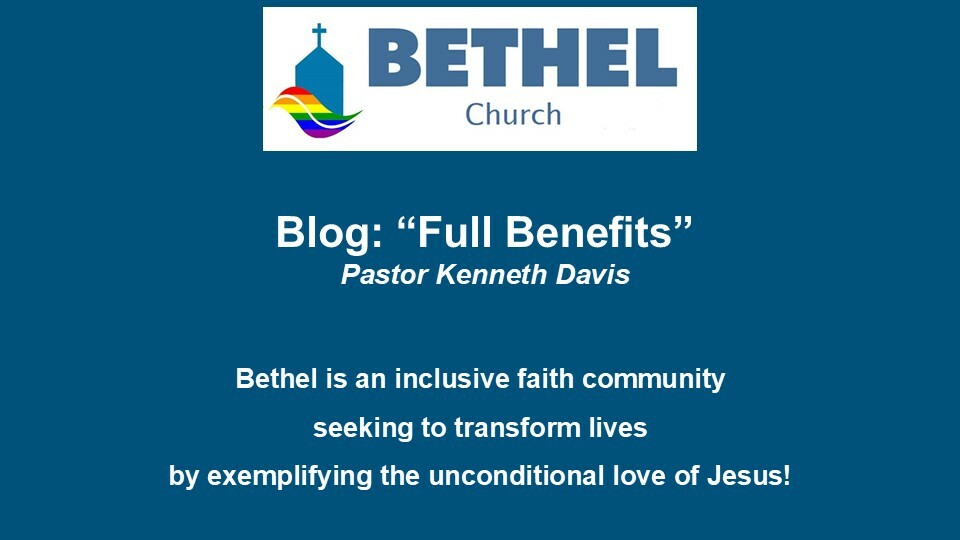Full Benefits


It's easy to overlook the myriad blessings that surround us daily, from the simple luxury of clean water to the profound gift of faith. Yet, when we pause to truly reflect, we find ourselves immersed in a sea of divine benefits that call for our heartfelt appreciation.
The ancient book of Psalms, particularly Psalm 103, serves as a poignant reminder of this truth. Written by King David, possibly in his later years, this psalm is a clarion call to remember and rejoice in God's goodness. It begins with a powerful exhortation: "Bless the Lord, O my soul, and all that is within me, bless his holy name. Bless the Lord, O my soul, and forget not all his benefits."
These words invite us to engage in worship that goes beyond mere lip service. David calls for a response that emanates from the very core of our being – our soul. This isn't a casual acknowledgment but an all-encompassing act of praise that involves every fiber of our existence. It's akin to the passion and energy found in soul music, where artists pour their heart, body, and spirit into every note. Similarly, our worship should be a full-bodied expression of gratitude, engaging our intellect, emotions, and physical selves.
When was the last time you approached worship with such fervor? Have you ever praised God with the same enthusiasm you might display at a sporting event or a concert? David's example challenges us to bring our whole selves to the act of worship, holding nothing back.
The psalm also emphasizes the importance of remembering. Our human memory can be fickle, quick to forget blessings and hold onto grievances. David understood this tendency and urged himself – and by extension, us – to actively recall God's benefits. This act of remembering isn't just about avoiding ingratitude; it's about cultivating a spirit of thankfulness that transforms our perspective on life.
The beauty of gratitude is that it's not reserved for the perfect or the privileged. Even in the midst of trials, there are always reasons to be thankful. Clean water, family, health, faith communities, supportive groups, food, clothing, air, and sunlight – these are just a few of the countless blessings that surround us. When we open our eyes to see them, we begin to understand the depth of David's call to "forget not all his benefits."
Moreover, gratitude isn't just about receiving; it's also about giving. As recipients of divine grace and favor, we are called to be conduits of that same grace to others. This can be challenging, especially when it means extending kindness to those who may not seem to deserve it. Yet, it's in these moments that we truly embody the spirit of gratitude, paying forward the blessings we've received.
As we navigate the complexities of life, let's take a cue from David's psalm. Let's cultivate a habit of pausing to reflect on our blessings, not just the grand, life-altering ones, but also the small, everyday mercies that we often overlook. Let's challenge ourselves to praise with abandon, engaging our whole being in expressions of thankfulness.
In a world that often focuses on what's lacking, choosing gratitude is a radical act. It's a declaration of faith, a testament to hope, and an expression of love. It's saying, "Despite the challenges I face, I choose to see the good. I choose to remember. I choose to bless the Lord with all that is within me."
So today, let's begin our own psalm of praise. Let's open our eyes to the benefits that surround us. Let's allow gratitude to well up from our souls, transforming our perspective and infusing our actions with thankfulness. For in doing so, we not only honor the Giver of all good gifts but also open ourselves to receive even more of His boundless grace.